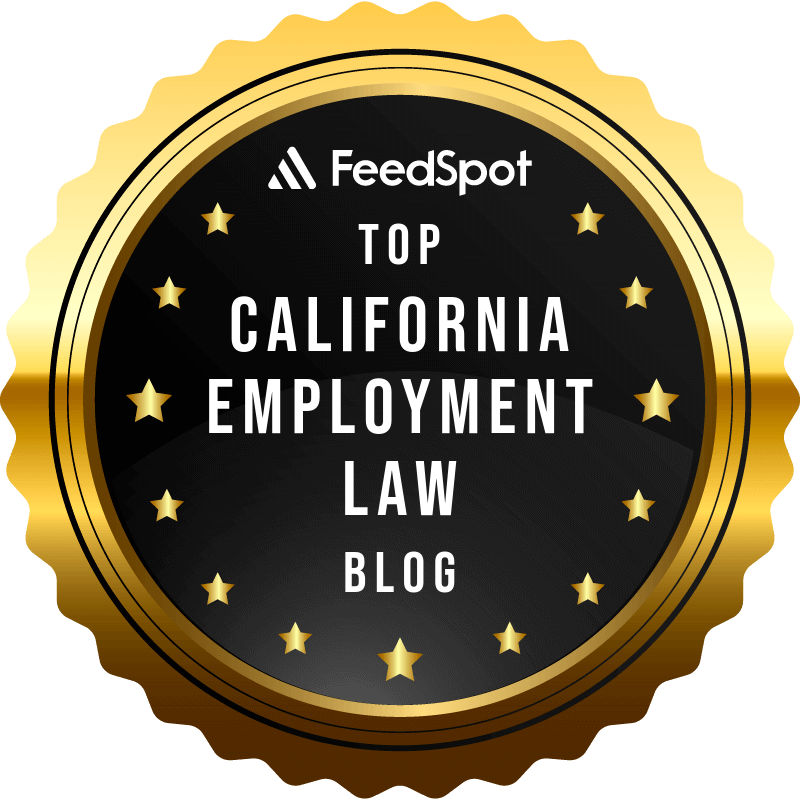Originally published on Colby Law Firm, May 6th 2022. Aaron Colby is a Los Angeles employment lawyer, who represents California employees in legal disputes with their current or former employers.
The California state law – Labor Code § 1102.5 – protecting employees who blow the whistle on or refuse to participate in illegal activity continues to be the strongest in the nation.
Employers Cannot Prevent Whistleblowing. “An employer … shall not make, adopt, or enforce any rule, regulation, or policy preventing an employee from disclosing information to a government or law enforcement agency, to a person with authority over the employee, or to another employee who has authority to investigate, discover, or correct the violation or noncompliance, or from providing information to, or testifying … if the employee has reasonable cause to believe that the information discloses a violation of state or federal statute, or a violation of or noncompliance with a local, state, or federal rule or regulation, regardless of whether disclosing the information is part of the employee’s job duties.”1
Employers Cannot Retaliate Against Whistleblowers. “An employer … shall not retaliate against an employee … because the employer believes that the employee disclosed or may disclose information … to a person with authority over the employee or another employee who has the authority to investigate, discover, or correct the violation or noncompliance … if the employee has reasonable cause to believe that the information discloses a violation of state or federal statute, or a violation of or noncompliance with a local, state, or federal rule or regulation, regardless of whether disclosing the information is part of the employee’s job duties.”2
Employers Cannot Retaliate Against Employees Refusing To Participate In Illegal Activity. “An employer … shall not retaliate against an employee for refusing to participate in an activity that would result in a violation of state or federal statute, or a violation of or noncompliance with a local, state, or federal rule or regulation.”3
What Is Considered Whistleblowing. Whistleblowing activities that fall within an employee’s general job duties are protected.4 A whistleblowing employee only must communicate information that they reasonably believe discloses unlawful activity.5
A Whistleblower’s Motive Is Irrelevant. If a whistleblowing employee has a reasonable suspicion that a violation of a constitutional, statutory or regulatory provision has occurred, their motivation for reporting that conduct is irrelevant to whether the disclosure is a protected activity.6
No Administrative Exhaustion. A whistleblowing employee employed by a private employer need not exhaust administrative remedies by filing a complaint with the Labor Commissioner before filing a civil lawsuit for violation of the statute.7
“Contributing Factor” Is The Standard. A claim for whistleblower retaliation under the California Labor Code requires proof that an employee’s protected conduct was a “contributing factor” in the employer’s decision to terminate.8
The McDonnell-Douglas summary judgment burden-shifting that applies to discrimination claims does not apply to whistleblower retaliation claims. This makes whistleblower retaliation claims difficult to dismiss before a trial.9 The “burden on the plaintiff is to establish, by a preponderance of the evidence, that retaliation for an employee’s protected activities was a contributing factor in a contested employment action. … the burden shifts to the employer to demonstrate, by clear and convincing evidence, that it would have taken the action in question for legitimate, independent reasons even had the plaintiff not engaged in protected activity.”10
Damages For Violating The Statute. A whistleblowing employee can recover actual damages11 (including economic damages and emotional distress), civil penalties of $10,000 per violation12, prevailing party attorneys’ fees and costs13, and punitive damages14. A prevailing defendant cannot recover their prevailing party attorneys’ fees15.
***
For those with questions about their own situation, contact Colby Law Firm.
1 Labor Code § 1102.5(a).
2 Labor Code § 1102.5(b).
3 Labor Code § 1102.5(c).
4 McVeigh v. Recology San Francisco, 213 Cal.App.4th 443, 469 (2013) (employee’s report of illegal activity can constitute protected conduct even if employee “was simply doing her job” in making report).
5 Ross v. County of Riverside, 36 Cal.App.5th 580, 592-593 (2019).
6 Mize-Kurzman v. Marin Comm. College Dist., 202 Cal.App.4th 832, 850-852 (2012) (“[I]t is not the motive of the asserted whistleblower, but the nature of the communication that determines whether it is covered.”)
7 Labor Code § 244; Satyadi v. West Contra Costa Healthcare District, 232 Cal.App.4th 1022 (2014).
8 California Labor Code § 1102.6 states that “[i]n a civil action or administrative proceeding brought pursuant to Section 1102.5, once it has been demonstrated by a preponderance of the evidence that an activity proscribed by Section 1102.5 was a contributing factor in the alleged prohibited action against the employee, the employer shall have the burden of proof to demonstrate by clear and convincing evidence that the alleged action would have occurred for legitimate, independent reasons even if the employee had not engaged in activities protected by Section 1102.5.”
9 See Lawson v. PPG Architectural Finishes, Inc., No. S266001, 2022 WL 244731 (Cal. Jan. 27, 2022) (“… courts should apply the framework prescribed by statute in Labor Code § 1102.6. … employees need not satisfy the McDonnell Douglas test to make out a case of unlawful retaliation.”).
10 Lawson v. PPG Architectural Finishes, Inc., No. S266001, 2022 WL 244731 (Cal. Jan. 27, 2022).
11 Labor Code § 1105.
12 Labor Code § 1102.5(f).
13 Labor Code § 1102.5(j).
14 Mathews v. Happy Valley Conference Ctr., Inc., 43 Cal.App.5th 236, 267 (2019).
15 Labor Code § 1102.5(j).

